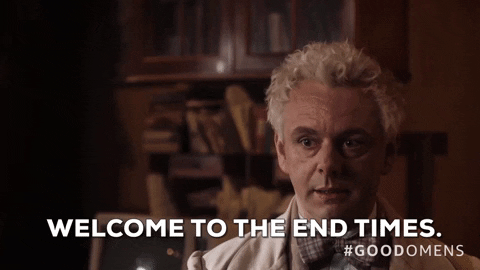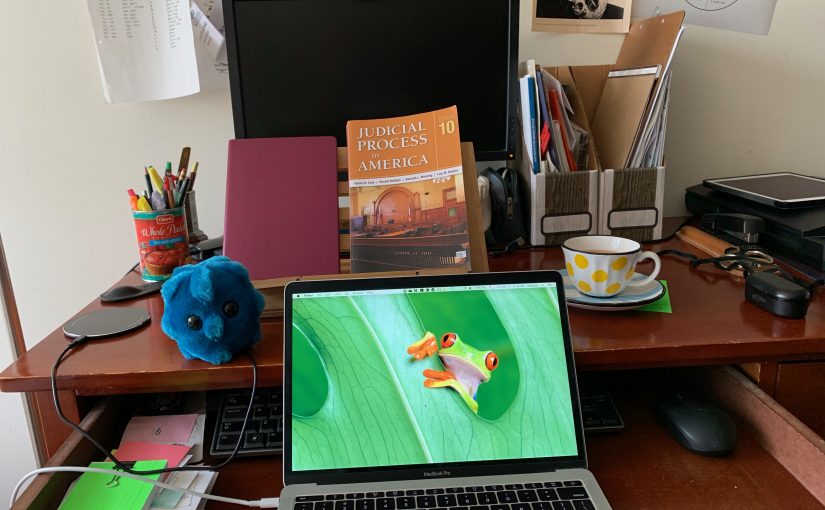(The photo shows my current home work place. Luckily, I managed to clean it up a bit last week, after it became buried under all kinds of stuff. The GIANTmicrobe is a corona virus, but a fairly harmless one: the common cold.)
Sunday night, and I managed to get my online course portion off to a start: Recorded a first short video greeting (to keep some liveliness in the online environment and show the students that we are making an effort—OK, also because it was fun); created a survey to get a sense of tech resources and skills that the students have; got a Google Voice number that students can call and text to; and wrote a short blog post and an email to inform students. Tomorrow, I’ll have to update the Canvas site with information about how to reach me during student hours.
I will try to keep things fairly simple. Two short videos per week, so that students see me moving and alive (keeping fingers crossed here!) and are possibly nudged to engage with the rest of the content. Maybe I can communicate some of the excitement about the material.
It’s always surprising how long it takes to create and upload a short video. I didn’t have time to produce closed captions, so I provide the video script to students as well. I write the script before recording the video (on Camtasia, which I was able to buy a few years ago with some of my faculty development funds), which is a great way to keep the length of the video under control.
I hope I can communicate some excitement because the course material for the rest of the semester rocks: Supreme Court behavior, Griswold v. Connecticut, same-sex marriage cases, Masterpiece Cakeshop. This is the fun stuff! First, though, I’ll ask them to research what cases there are that would apply to government measures that restrict individual liberties in the face of national emergencies. And maybe that’ll take over the rest of the course—I’ll be flexible here. One way or another, the material is exciting.
I am lucky: I teach only one course a semester, as my other responsibilities are focused on creating faculty development programs. Since my main work doesn’t revolve around learning technology and design, I am not swamped with help requests right now, though I try to do my share and offer my time wherever I can help. And I don’t have children to care for at home. I can’t imagine suddenly having to teach three or four online courses while at the same time having kids at home as schools are closed.
I noted that I started a class blog where I can post the welcome videos. You can see the first post below. I’ll pipe this into Canvas with the Redirect Tool. If I find out that all students can easily access Canvas, I might cancel that blog again and create the content directly in Canvas, to simplify things. But for now it might be an idea to keep things also in an open environment that students can access without passwords and the dreaded Duo Security app.
If you’d like to use the tech resources survey that I sent to the students, you’re welcome to do so; download it here (MS Word doc).




